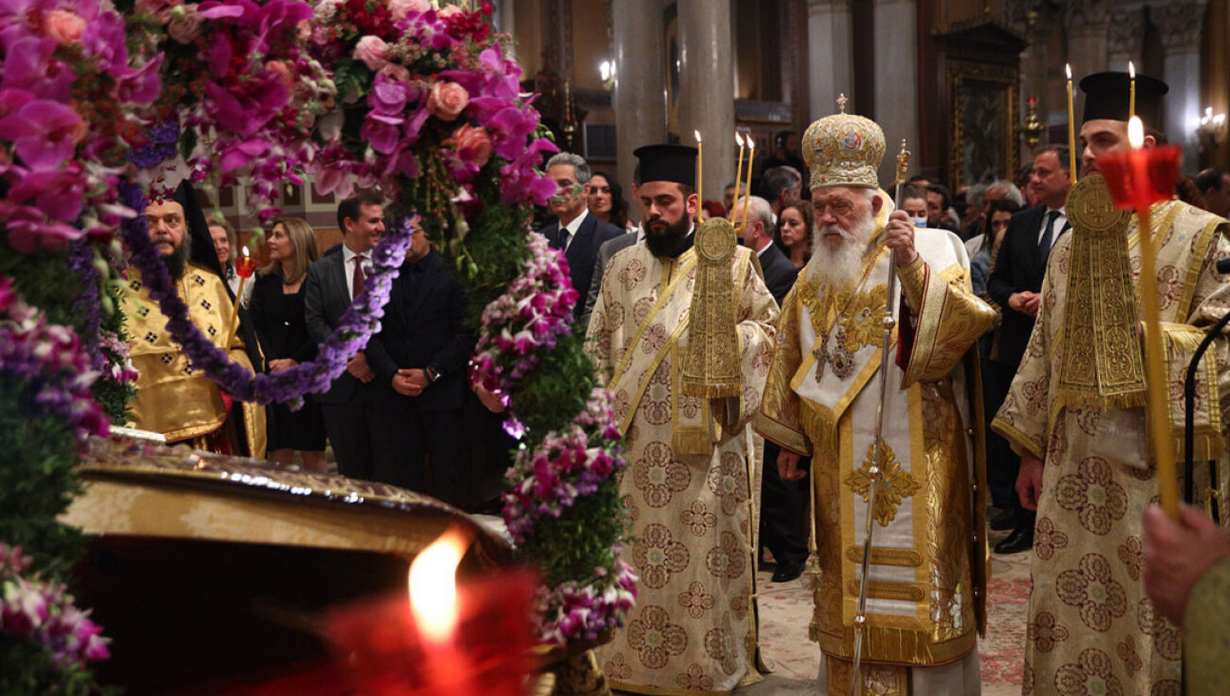Yianna Angelopoulou-Daskalaki spoke on ERT with Giorgos Kouvaras about the significance of the 2004 Olympic Games, their contribution to the international image of the country as well as the cost of the games.
Community participation
Mrs. Angelopoulou-Daskalaki highlighted the widespread sentiment of participation and engagement with the 200-year anniversary of the Greek Revolution, noting that the phrase “I was there too” resonated widely. Having traveled to 83 cities she found that everyone had stories to share about the Games. Emphasised was the significance of the community embracing the Games, stating that without such collective ownership the games would not have had the impact they did. Highlighted was the extensive involvement of various groups and communities which included workers, volunteers, and security forces where she described how Athens transformed into a construction site with numerous test events and significant investments.
Mrs. Angelopoulou-Daskalaki reflected on the preparations for the 2004 Olympic Games, recalling collective anxieties that eventually led to success. She highlighted the significance of the Games for Greece, citing infrastructure development, national pride, and enhanced global perception as key gains. She underlined the impact of the volunteer movement, the training of thousands of people involved , and the execution of major projects, suggesting that such accomplishments would not have been possible without the impetus provided by the Games.
The 2004 Olympic Games marked a significant moment for Greece, restoring its global prominence. Mrs. Angelopoulou-Daskalaki claimed that the country’s flawless execution of the event resulted in international prestige and lasting national confidence. The Games also provided Greece with essential Olympic infrastructure and outstanding public facilities, while thousands benefited from training opportunities across various sectors. Highlighting Greece’s unique contribution, she went on to point out the global presence during the Olympic Torch Relay, symbolising Hellenism’s universal spirit. Furthermore, she presented indisputable financial data, showcasing responsible budget management, with the organising committee generating revenue from various sources. Despite the modest government contribution, the Games were completed with a surplus, returning 130 million euros to the state. Mrs. Angelopoulou-Daskalaki contrasted Greece’s cost-effective approach with the extravagance of other Olympic Games, citing the Oxford study, which highlighted Greece’s remarkable efficiency in hosting the event. Overall, she stressed the enduring legacy of the 2004 Olympics and urged for its continued utilisation to benefit the country.
A study by the IOBE revealed that the Greek government invested 6.5 billion in infrastructure projects related to the Olympic Games from 2000-2010, amounting to 1% of public expenditure. During the Games year there was a 2.5% GDP increase from boosted revenue streams like tourism and VAT. Mrs. Angelopoulou-Daskalaki debunked the myth that the Games bankrupted Greece, urging critics to examine data and consider the potential benefits if the Games’ legacy had been fully utilised. She advocated for collaboration to revive abandoned projects.
When asked about her legacy, she went on to stress the importance of individual contributions to the country. George Kouvaras questioned if she had another significant mission to which she recounted her past electoral successes and her role in various national projects. She expressed readiness to continue serving her country if called upon.






































